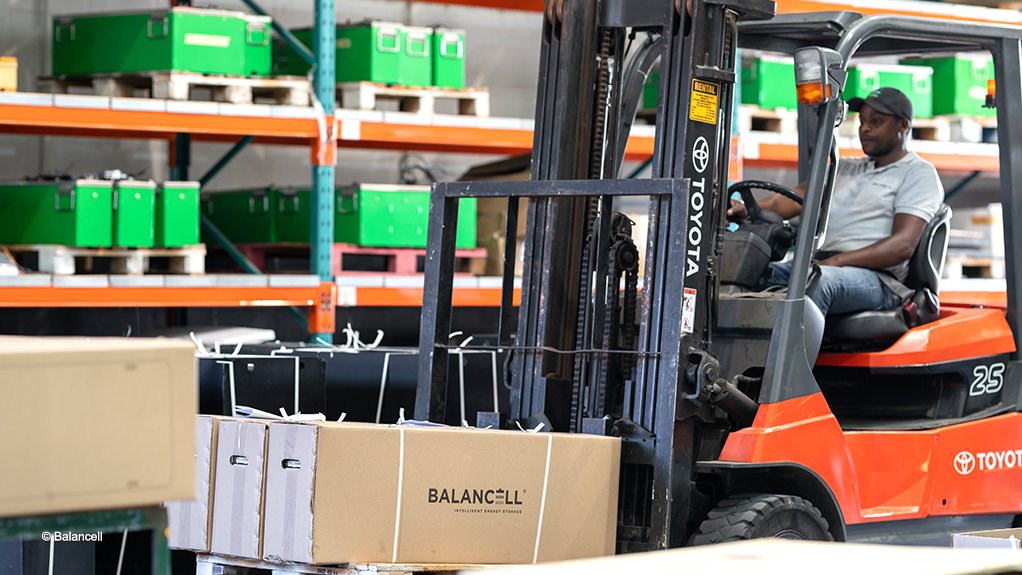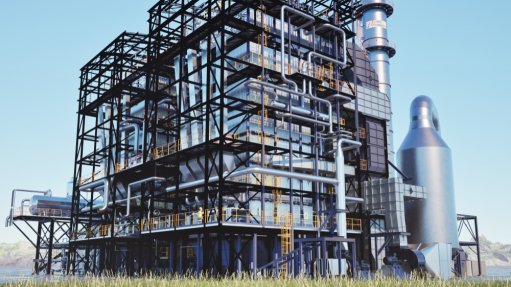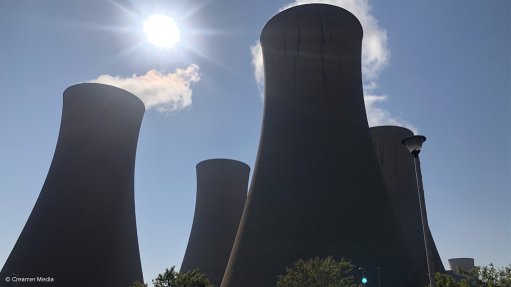Balancell expands plant tenfold; seeks govt backing for energy storage industry
Energy storage company Balancell is moving into a new R80-million factory in Ndabeni, Cape Town, as the business gears up to grow its capacity roughly tenfold, says chief commercial officer Ian Pieters.
The lithium ferro-phosphate battery assembler’s previous plant was limited to 250 MWh capacity a year, with the new facility scaling that up to between 2 GWh and 3 GWh a year.
Lithium ferro-phosphate batteries are generally regarded as more stable and less temperature sensitive in lithium chemistry, explains Pieters.
Coupled with Balancell’s three-tiered safety features, embedded into the battery, the fire risk is significantly lower, he adds.
“Balancell has also designed these batteries to be almost as energy dense as other lithium chemistries.”
Pieters says Balancell’s expansion project is driven by strong demand for energy storage products locally and globally.
This demand is then also driving Balancell’s expansion into the rest of Africa and Europe.
“We recently commissioned a large 2.5 MWh stationary battery installation for a factory in Nigeria,” says Pieters.
The company’s products will also soon be in Europe, with Balancell’s first battery systems set to arrive in Portugal in September.
Breakthrough Customer
Balancell’s biggest customer is Toyota Material Handling, a subsidiary of CFAO in South Africa.
Toyota acted as the breakthrough client for Balancell, allowing the company to grow in tandem with the popular Japanese brand.
“They liked the quality of our system, the durability, the real-time communication and the intellectual property in our battery management system (BMS),” says founder and CEO Dr Ian de Vries.
“At the time of our launch we were the only battery manufacturer in South Africa with a locally designed BMS that had real-time communication – and not only when charging, but also when in operation.
“Balancell’s technology can measure energy in and out of the battery more accurately, and faster than most batteries globally, and this allows the BMS to better protect the battery and optimise its performance,” notes De Vries.
“Toyota took a positive view on a South African startup and, as a result, we have installed more than 3 500 batteries (59 500 kWh) in Toyota’s forklifts,” says Pieters.
“We believe there remains substantial room to grow in what we call the industrial motive market,” he adds.
“I think we have only scratched the surface of what is possible, as a lot of traditionalists are stuck on using lead-acid batteries in their forklifts, especially in Europe.”
Pieters says South Africa has been one of the fastest adopters of lithium batteries in the industrial space, with the logistics market moving rapidly from diesel and lead-acid batteries to lithium batteries.
He believes that larger stationary energy storage projects, the mining sector and the public transport sector also offer opportunities for growth.
“We are speaking to a few bus manufacturers about electric buses, for example. We are also looking at rolling out our technology in mining equipment, such as underground locomotives.”
One of the first markets where Balancell had success, and where it remains active, is the cleaning equipment and access equipment markets.
Joule Roots
Balancell was established 14 years ago by De Vries and a team of senior engineers who had all been involved in the design and production of South Africa’s first electric car – the Joule.
Prior to that, De Vries was an associate professor at the Cape Peninsula University of Technology.
He had also founded two other startups – in electric bicycles and power electronics – and was consultant on Round 1 of government’s Renewable Energy Independent Power Producer Procurement Programme.
“When we started, lithium batteries were two-and-a-half times more expensive than lead-acid batteries,” notes Andrew McPherson, a Balancell shareholder and business adviser.
“Now it will not be too long before it reaches price parity. Also, one lithium battery can do the work of three lead-acid batteries.”
Balancell’s local content ranges between 35% and 45% (of value), with everything except the cells made locally.
“We aim to partner with a local inverter manufacturer in the commercial and industrial space, which will ensure we have close to 70% local content on 1 MWh-plus battery energy storage systems,” says McPherson.
Balancell employs around 70 fulltime staff, with a downstream effect of another roughly 1 000 people, he adds.
“As an example, Balancell uses an average of 200 t of steel a month.”
Lack of Large-scale Local Opportunities
Both Pieters and De Vries lament the lack of opportunities for local battery assemblers when it comes to large-scale battery storage contracts, such as those on offer from power utility Eskom.
“It’s not necessarily about the quality – our quality is on par, or better – but about the international balance sheet backing the project,” says Pieters.
“This means that for these projects, there is very little participation from local battery assemblers, yet there are at least four credible local battery manufacturers.
“We have engaged the likes of the Industrial Development Corporation in an effort to reserve a portion of these contracts – say 10 MWh to 50 MWh – for local companies, but the message has not landed.
“The recent 10% tariff on solar panel imports is a move in the right direction. However, the local energy storage industry generates significantly more jobs, and protection for this industry is also urgently required,” says Pieters.
Article Enquiry
Email Article
Save Article
Feedback
To advertise email advertising@creamermedia.co.za or click here
Press Office
Announcements
What's On
Subscribe to improve your user experience...
Option 1 (equivalent of R125 a month):
Receive a weekly copy of Creamer Media's Engineering News & Mining Weekly magazine
(print copy for those in South Africa and e-magazine for those outside of South Africa)
Receive daily email newsletters
Access to full search results
Access archive of magazine back copies
Access to Projects in Progress
Access to ONE Research Report of your choice in PDF format
Option 2 (equivalent of R375 a month):
All benefits from Option 1
PLUS
Access to Creamer Media's Research Channel Africa for ALL Research Reports, in PDF format, on various industrial and mining sectors
including Electricity; Water; Energy Transition; Hydrogen; Roads, Rail and Ports; Coal; Gold; Platinum; Battery Metals; etc.
Already a subscriber?
Forgotten your password?
Receive weekly copy of Creamer Media's Engineering News & Mining Weekly magazine (print copy for those in South Africa and e-magazine for those outside of South Africa)
➕
Recieve daily email newsletters
➕
Access to full search results
➕
Access archive of magazine back copies
➕
Access to Projects in Progress
➕
Access to ONE Research Report of your choice in PDF format
RESEARCH CHANNEL AFRICA
R4500 (equivalent of R375 a month)
SUBSCRIBEAll benefits from Option 1
➕
Access to Creamer Media's Research Channel Africa for ALL Research Reports on various industrial and mining sectors, in PDF format, including on:
Electricity
➕
Water
➕
Energy Transition
➕
Hydrogen
➕
Roads, Rail and Ports
➕
Coal
➕
Gold
➕
Platinum
➕
Battery Metals
➕
etc.
Receive all benefits from Option 1 or Option 2 delivered to numerous people at your company
➕
Multiple User names and Passwords for simultaneous log-ins
➕
Intranet integration access to all in your organisation





















